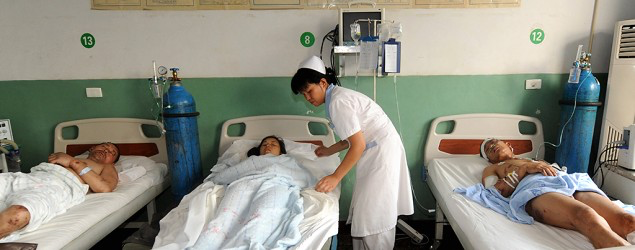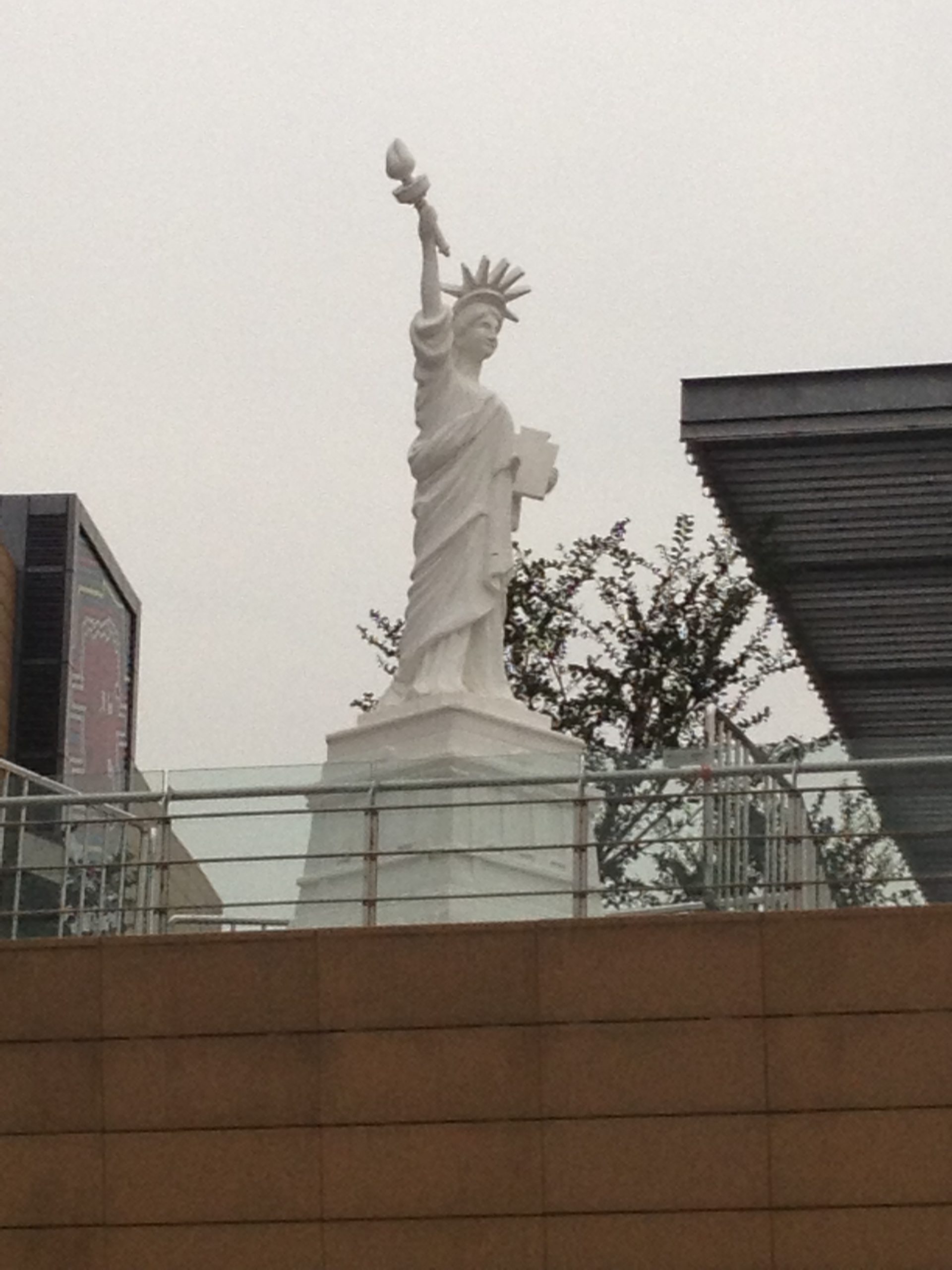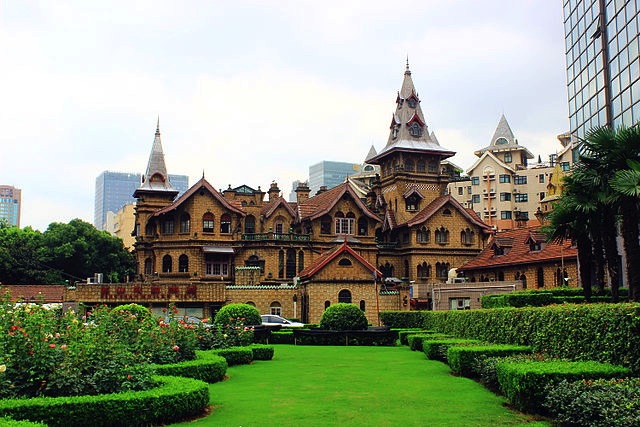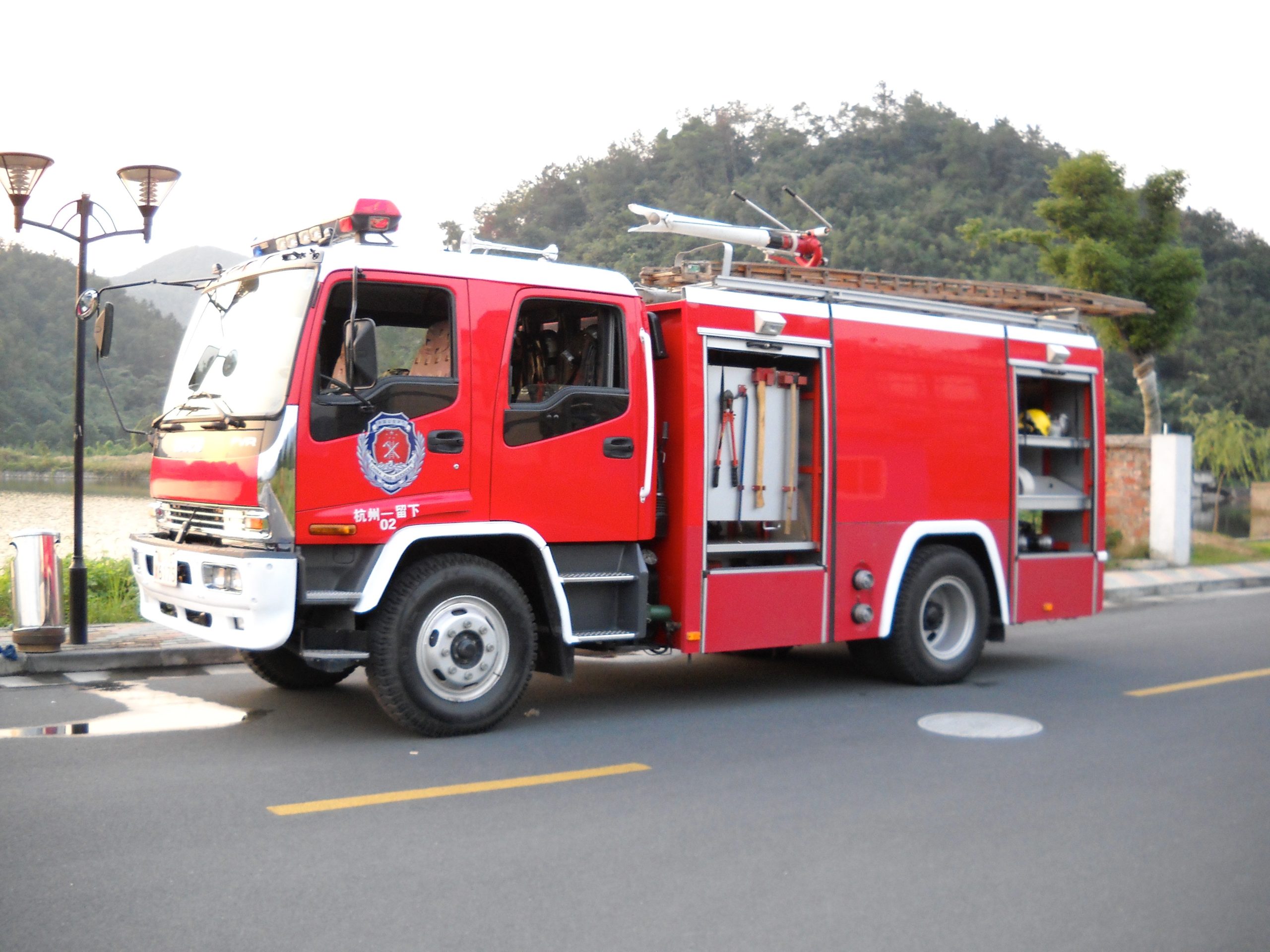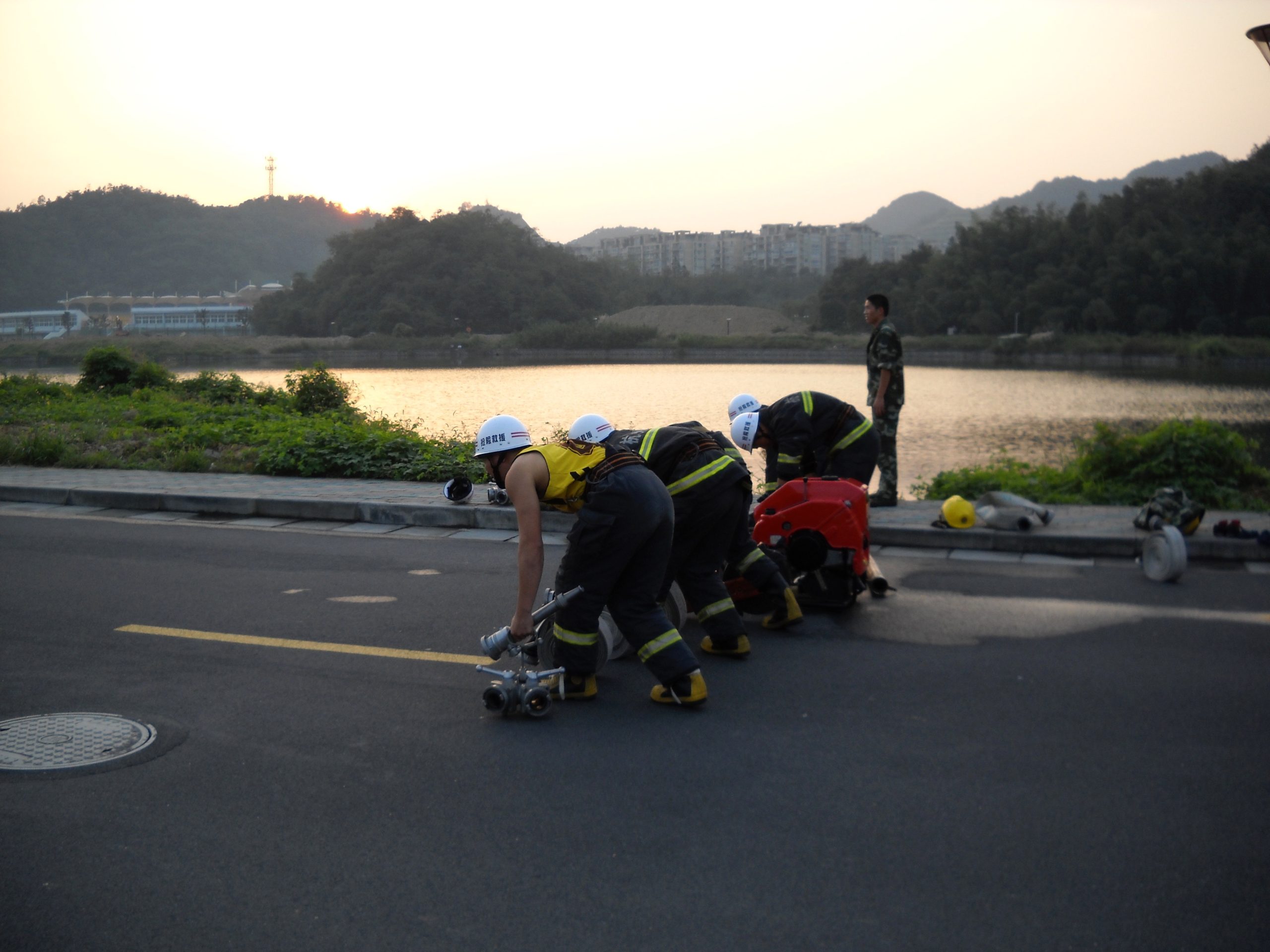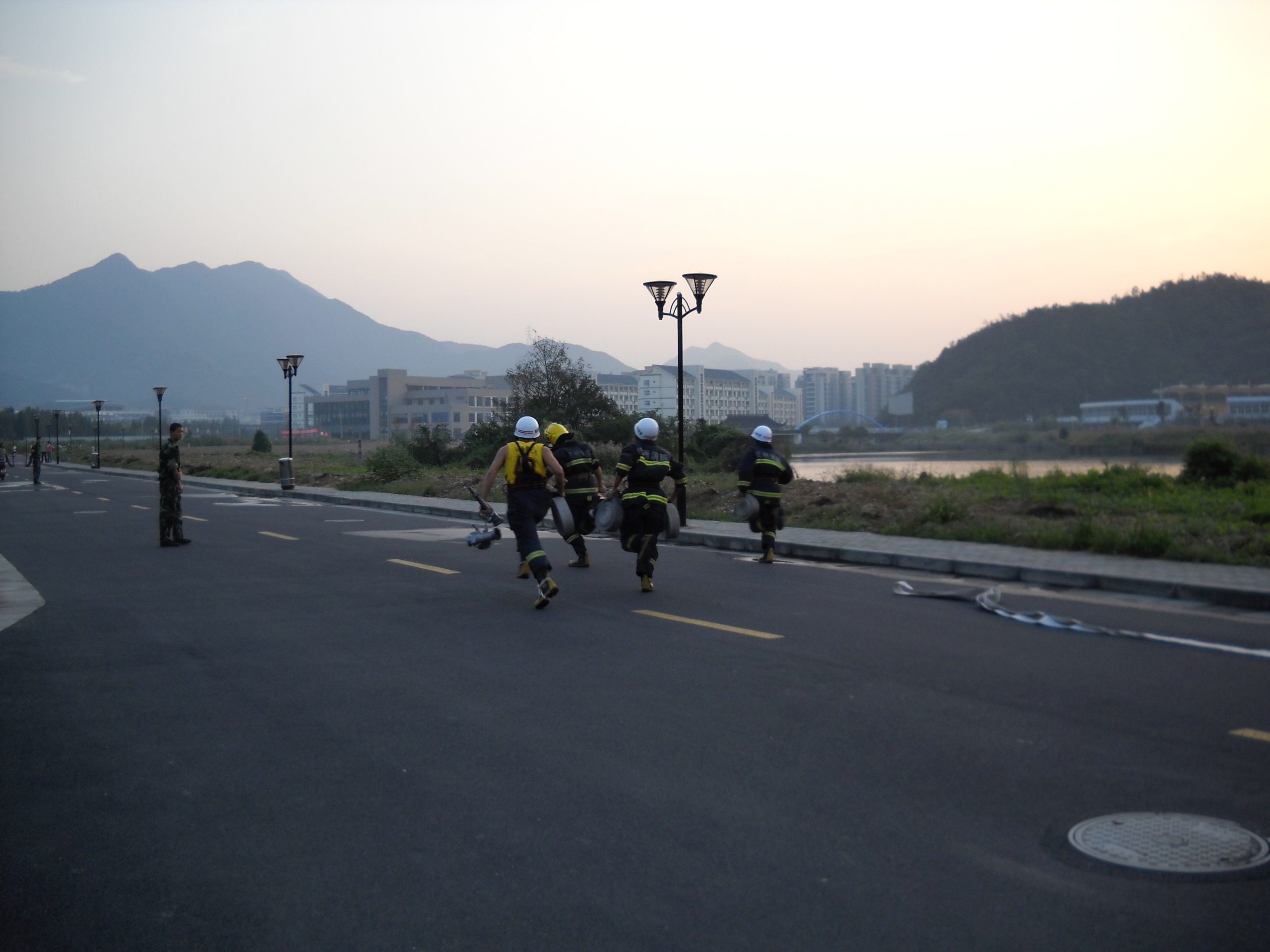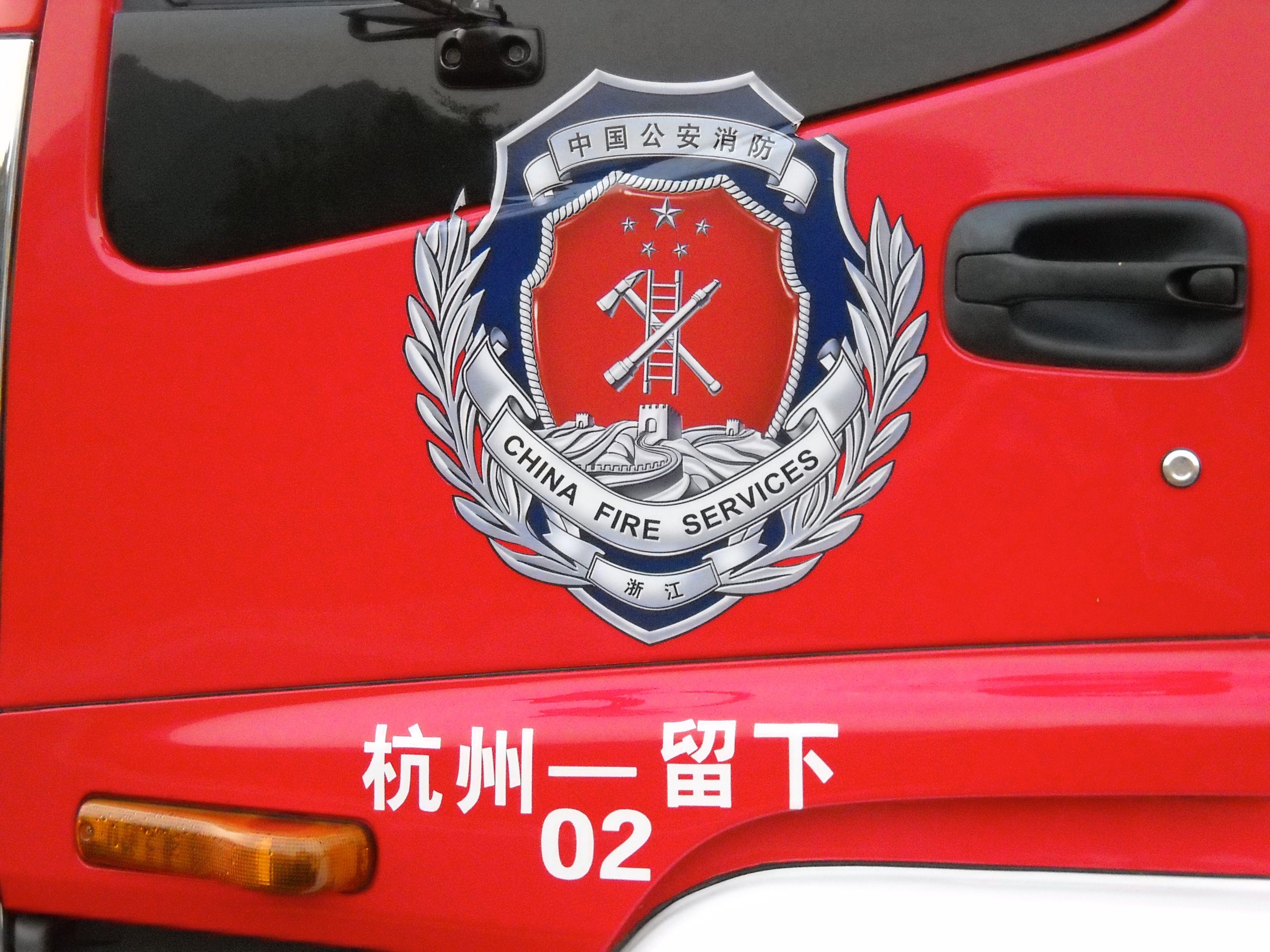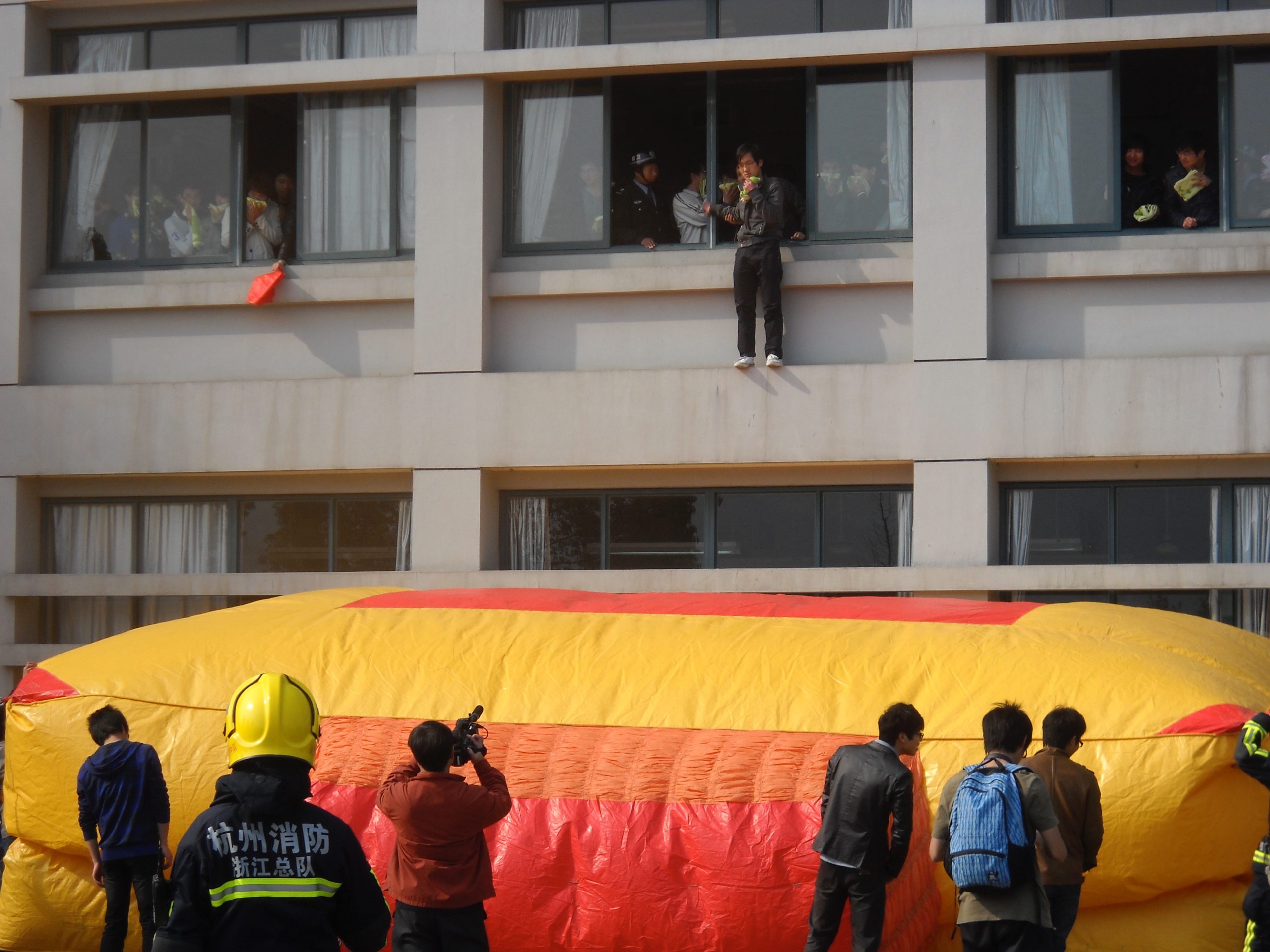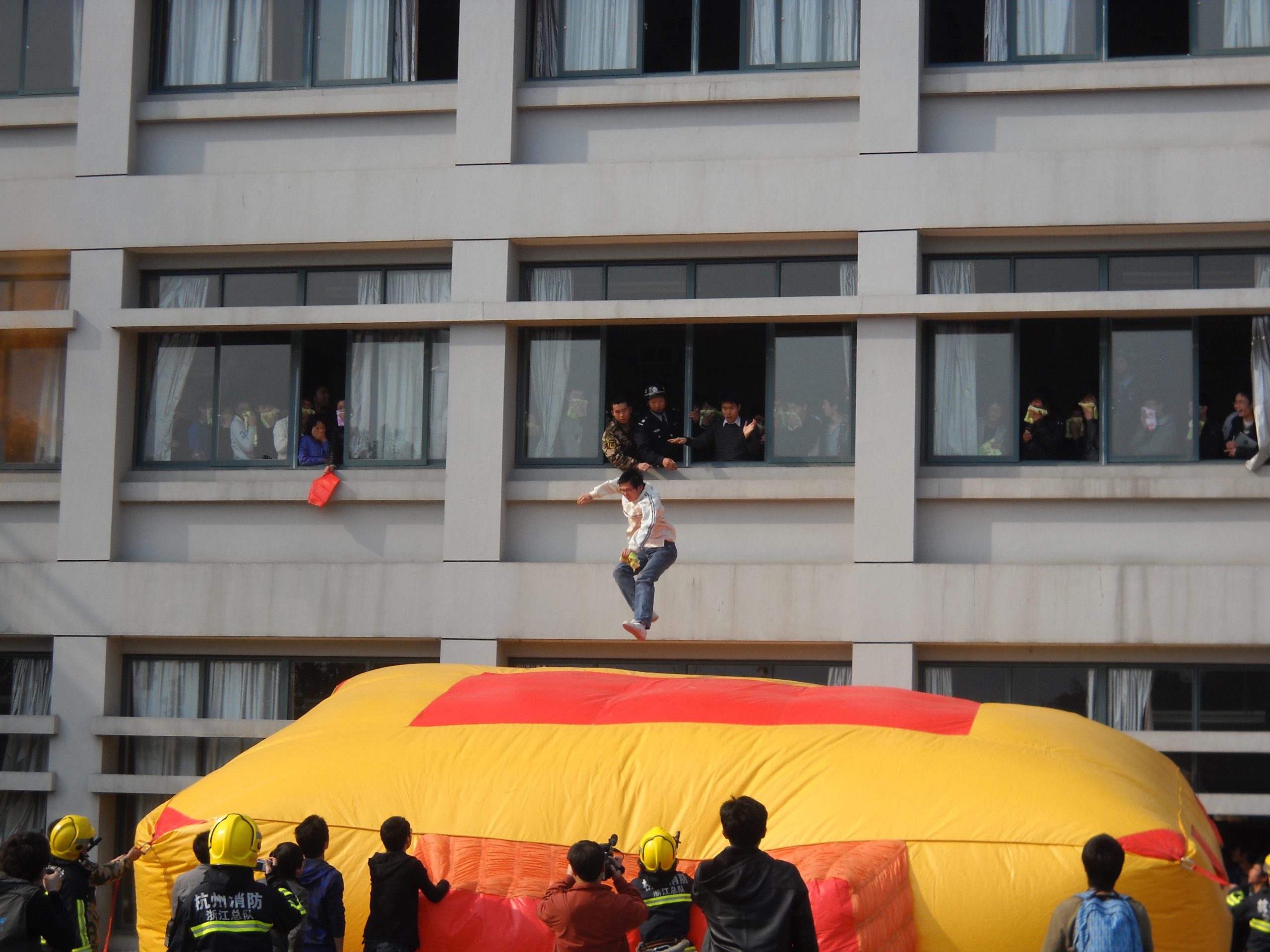Summer and Fall, 2012
(reader note – this is a bit long, but has some details about hospital care. Forewarned is forearmed)
A while ago, I wrote about mysteries of the parking lot market in Hangzhou.
There are procedural mysteries everywhere in China. Systems that are clearly not care-full of the needs of customers, but at the same time, seem not to be in the interests of the provider. Hospital operations are another good example. Take the Zhejiang Pregnant Women’s Hospital, one of the AAA rated hospitals in China. Or the Hangzhou No. 1 Hospital, across the street from the Pregnant Women’s Hospital, another AAA facility. Or, I surmise, most any hospital in China. The systems, both physical and procedural, seem chaotic, redundant, and stupid, for every human inside the building.
It is supposed to be a sophisticated management insight that systems try to optimize. Something. Maybe not customer satisfaction, but maybe management benefits, or leader salaries, or bureaucratic time. Profits. Maybe it is hard to see what is being maximized or minimized, but by default, something must be.
Hospital Rules has two meanings here – the procedures and requirements that any organization must impose to maintain order; and the peculiar implementation of rules in hospitals in China for which the only discernible purpose is to grind the customers into submission. The administrative system – the Rules – uber alles.

Source: my Experience at a Chinese Hospital http://www.chinadaily.com.cn/opinion/2014-04/23/content_17455961_2.htm
So we think that hospitals, like any other institution, anywhere, are maximizing someone’s comfort, someone’s benefit. Could be doctors – we think that, in the US. Could be hospital administrators. Or insurance companies. Or the government. No one thinks the system maximizes patient care. Certainly, no one in China thinks that. Maybe benefits accrue to no one physically at the hospital – maybe it is the government officials in charge of setting standards for hospital procedures, or those benefitting from contractor or developer kickbacks, who are many years gone from observing the actual operation of a hospital, but nevertheless profited from designing hospital systems.
That could be. Architects are notorious for maximizing their own interests, to the detriment of the customer or the operator. The system in China could be maximizing the interests of some group of original hospital designers. Flow charts and department layouts and coordination with other hospital departments. Flow of paperwork, flow of people, flow of medicines and blood vials and cleaning supplies and band-aids. It is no accident that hospitals are laid out as they are.
In China, the physical design admirably reflects the lack of concern for normal procedures. It is as if all these people showing up every day – who could’ve known? It is not as if the hospital layout was designed in the 1920s, and modern medicine needs different size rooms and storage areas for equipment, and wall space for oxygen and air and ten other fluids, and the poor old buildings are just trying to cope. I mean, the floor layout, and the room sizes, are entirely appropriate to the battlefield conditions one finds in the hospitals at any time of day. In other words, the battlefield conditions are built in. The Pregnant Women’s Hospital is really a Chinese MASH unit – maternity and standing hospital. God forbid that pregnant women would want to sit down.
You can probably guess by this point. I do not suggest that hospital procedures are designed to maximize patient comfort or satisfaction. But let me give you some details. The hospital system, like many systems in China, is designed for grinding. Grinding people, to the point at which they give up protest, or resistance, or care about quality, and settle for … whatever the system provides. Animals will protest when you beat them, but if you beat them enough, they will work for you. Power maintains its privileges through mystery and struggle. Power, in the hospital system, may not be maximized, but it is conserved. The system uses just enough mystery, just enough struggle, to retain its privileges and force the patients, and their spouses and assistants, to submit.
The Pregnant Womens’ Hospital in Hangzhou has multiple entrances. In a place with hundreds of people going in and out at any one time, this probably makes good sense, not to funnel everyone through one set of doors. But the physical hospital layout exhibits one of the Chinese characteristics in building that I just cannot get over, unless one considers the role of mystery in Chinese culture.
This is the penchant, everywhere, for making building exteriors indistinct and their interiors confusing. We all like buildings that are not foursquare boxes; but we also appreciate when a building tells us something about where to go, or how to get there, whether with signs or design. Chinese hospitals do neither. Mystery is a key design principal – the less you know about how a building works, the more power the building management has over you. Not that the management really needs to exercise power over patients; patients are already at something of a disadvantage by walking into the hospital. But mystery, whether in design, or communication, supports power.
At the Pregnant Women’s Hospital there are three main hospital buildings, all built at one time. It is a hospital, so you don’t expect every floor to have the same layout, but you sort of expect some connectedness in going from building to building, especially at the first floor.
But you can’t walk from building 1 to building 2, or building 3, by any means other than by walking through an alley, crowded with moving trucks and cars and people, and then by narrow hallways full of old computers and hospital equipment lying around the corridor. Sort of like the garbage dump inside the spacecraft in Star Wars, into which Luke and the Princess and Han get dumped, and the walls start closing in on them. No scary underwater creatures, though. We are not really in a movie. Too bad. That would make more sense.
And it is not in the design, people were not expected to walk between buildings. They must walk between buildings to get different pieces of their own health care. But the unclear physical layout is the beginning of the mysterious Chinese process of grinding down, by means of design. Some more examples –
There are generally no clinics, or individual doctor offices in China. When someone has a cold, they go to the hospital. And even in the Pregnant Women’s hospital, with multiple entrances, everyone has to pay first, before service. I have used hospital emergency rooms two times, and even then someone has to pay for you before you get served. If you are dying, or bleeding profusely, or in extreme pain, make sure you have at least two people to go with you to the hospital – one to drive the car, and wait in line to park while you go inside, and one more person to stand in line to pay for you. Bring some money, as well. Not a lot, maybe a few yuan, but fee for service is the operating principal much of the time. If you need help getting upstairs to see the doctor, bring another person. (Actually, fixing these inappropriate procedures would cut down significantly on the crowded conditions – no one looking for emergency treatment would dare come to the hospital alone).
Now, about paying for service – this can get complicated. Sometimes, you can stand in line to pay, tell the cashier what is wrong with you, and they will charge the appropriate amount and give you a receipt to get served by the doctor somewhere else in the hospital. Ok. But most of the time, it seems, you must have a signed note, sort of like an appointment, but not really, from the doctor before you can pay. So – you have to go see the doctor, stand in line at the doctor’s office, to “get a number,” as they say here, so you can pay before you go see the doctor. I am not kidding. This is not true for emergency procedures, but it is certainly true for most any normal procedure, including monthly trips to the gynecologist, in the Hangzhou hospitals.
Payment is always on the first floor, generally at least one floor and half a hospital away from the office where you had to get a number from the doctor. The patient, whatever condition they are in, if they can walk, they should physically carry the piece of paper with the number to the business office, where the payment can be made and the receipt will serve as admission to the presence of the doctor.
If you have sufficient guanxi, you can see the same doctor every scheduled pregnancy visit, every month or two weeks. But don’t get the impression that you call, get an appointment, show up ten minutes before the appointment, wait a little long, but get in within half an hour to spend a few minutes with your personal doctor, who knows your history and has your records and will more or less patiently listen to questions and provide answers. That would be a mistake.
First of all, no one in the hospital – not a doctor, not a nurse, not a technician, not an administrator – is reachable by cell phone, land line phone, email, text, twitter, or a sense of general human compassion. Phone numbers don’t exist or if they do, calls go unanswered. It is not possible to make an appointment for any service, whatsoever. When you want service, come to the hospital, and get in line. Face-to-face is the only form of contact. I would guess there is no patient advocate in Chinese hospitals.
Doctors are in short supply, and doctors don’t get to choose their patients, in any real sense. They have some control over how many patients they can take on, but the nature of guanxi means that a friend of a friend can always sort of impose on a doctor to take one more patient, and for the doctor to say no would mean loss of face for the person making the request, which one tries to avoid. So, doctors end up with far more patients than any medical standards off the battlefield would allow. But every patient is in the doctor’s office because of guanxi from somewhere.
The doctor gets into the office at about 8:30. Women who have previously seen that doctor, and are in some minor sense, her patients – have been lined up outside the office since about 6:30 or 7:00, waiting to get into the office to “get a number.”
When the assistant open the door, you can imagine the rush. It would be comedy, if everyone weren’t so serious. It would be sad, if this were a Civil War battlefield hospital, with men begging for care. Here, it is just outrageous and stupid. When the door opens, the twenty or thirty women waiting rush the door, and ten or fifteen make it inside the door. The losers wait outside the doctor’s office door, until someone walk out. The doctor is seated at a small desk, and the pregnant women, in various stages, are thrusting their medical records from three sides of the desk at the doctor. When the doctor take the medical records, the patient gets a number, which sets her place in line to – come back and see the doctor. Not a joke. When the doctor gives you a piece of paper with a number on it, you are IN. By this point, the winners feel pretty special. But that is how the grinding process works.
The wait begins. No one is going to see the doctor for half an hour or an hour, because the doctor is sitting at the desk handing out numbers, being on the phone, looking up information on the computer, answering urgently shouted requests from the horde.
Our particular doctor only has office hours one-half day a week, in the morning. If you can’t get a number for that day, you can come back next week or do something else, unspecified. But the something else does not include seeing a doctor in the next office. You did not develop the guanxi to see that guy.
For some people though, not getting a number from the doctor is no impediment to seeing the doctor. In our case, yesterday, the doctor gave out 28 numbers to see 28 patients between about 9:00 AM and about 12:30, when she would leave. The hospital itself gives out the first few numbers to see the doctor, presumably for the people who get to the hospital at 6:00 AM and before the doctor herself gets there. The number of numbers given out by the hospital varies, but sometimes the hospital gives out numbers 1 to 10. The doctor herself, on our last visit, gave out numbers from 16 to 33, for a total of 10 plus 18, or 28 patients.
But some women walked in with numbers, and their names in the computer, for numbers 11 through 15, that the doctor did not give out. She was a little pissed about the imposition, but this is extra special guanxi at work. Not only do these five women have a number that the doctor did not give out, their names are already in the computer for the doctor to see. She could refuse to see these patients, but even doctors have issues of guanxi to deal with, for promotions and more money and other mundane work benefits. So, 33 patients in about 3 and one-half hours, or about 10 per hour. Pregnant women who, in a normal world, should have questions, and fairly intricate questions at that, requiring thoughtful answers. Not to mention saying hello, and goodbye, and measuring the circumference of the stomach, and looking at records of blood tests and ultrasounds and other tests that might have been done in the time since the previous visit. And, constructing a story that makes sense about the medical history of the patient, to provide more tailored advice. For the sake of patient care, one hopes that the doctor never has to go to the bathroom, or have an emergency. In that case, everyone would just have to come back next week.
Actually, it is good that you have to wait. While waiting, you can go pay for the visit, because you can’t come back and see the doctor without the paid receipt. Or you can go weigh yourself, get blood pressure taken, or get a blood test. Or a nap. Befitting the battlefield conditions, there are people sleeping everywhere, propped up against walls and chairs, women sprawled sideways on chairs trying to get some rest, since they got up at 4:00 AM to take buses for two hours to get there by 6:00 AM, to get in line for an appointment at 11:45 or 2:30.
One needs to get the weight and blood pressure and temperature taken care of, on one’s own, in the interim waiting time to see the doctor, unless one wants to make the hospital visit into an all day affair. Any tests, or visits, that are not completed by 12:00 cannot be done until 1:30 PM or after. Why? Because the entire damn hospital closes down for 90 minutes, at 12:00, for lunch. The hospital closes down, like maybe a restaurant that closes for a couple of hours between the end of lunch and the start of dinner. The place that was teeming with humanity at 11:55 is like a ghost town at 12:15. At 1:25, it will be teeming, again. Of course, anyone in line at 12:00 when the doors slam shut can reserve their place in line at 1:30. Right. No. Even the line to pay, to give the hospital money, closes down. Now that is efficiency.
The line to pay for the visit is usually not too long, maybe five or ten or fifteen people in front of you, and it moves reasonably quickly. Maybe wait in line five or ten minutes, or a little longer. But there can be complications.
One time, the doctor wrote down the wrong id number for the procedure we were to get – I dunno, maybe she wrote down a number for “amputate both legs,” instead of “regular office visit.”
Not sure. But the cashier, ever precise, caught the mistake. The fee written down by the doctor was 5 yuan short. The hospital would have lost 5 yuan in that event, not to mention maybe Qing’s loss of legs. I graciously offered to pay the 5 yuan right then, change the procedure order number right there at the cashier, but there is no getting around the procedural maximization in the hospital.
Maybe you can guess. We had to go back up to see the doctor, to make the doctor correct her serious error. We rejoined the pleading, bleating mob in front of the doctor’s desk, and in only about 15 minutes we had made the doctor correct the id number for the procedure. No doubt, surrounded as she was by medical records and pleading women, she felt severely chastised by the downstairs cashier for making such an egregious error. No doubt the doctor will never make that mistake again. Cost to us in time, standing in line the first time, arguing with the moron cashier, going back upstairs to get the id number corrected, waiting to see the doctor again, going back downstairs to pay again, about 45 minutes.
You remember Steve Martin as the weatherman in Los Angeles, in LA Stories. His life was without care, the weather was always perfect, and he was … bored. Bored Beyond Belief, is what he wrote on his window pane – BBB. I am coining a new term, SBB, for procedural … complexity … in China. Stupid Beyond Belief. This fee snafu is a relatively minor example of an SBB moment. We can call it SBB – minor.
After getting the procedure number corrected, we went back downstairs, stood in line, paid 25 yuan, instead of 20 – about $0.50 difference – and went off to get the blood test.
It is not so easy to find aspirin in china. For some reason, aspirin seems to be one of those western things that don’t fit with Chinese culture. I don’t know why – there is certainly mystery about how it works. American pop aspirin like … well, aspirin. Chinese don’t. But blood tests are a different story.
Chinese do blood tests for … everything. If you come to the hospital for a cold, you get a blood test. If you complain of feeling badly, you get a blood test. I am pretty sure that if you complained that you did not have enough blood, the hospital would ….
Pregnant women get frequent blood tests. I am not medically savvy to know what they are testing for, so continuously, but the process is one of the scariest things I have seen in China. Regardless of the hospital, the procedure seems the same. Call it another SBB – minor, unless by mistake it becomes an SBB – major.
The blood test stations are designed to maximize throughput. There are ten to twenty service stations, behind a long window, at which technicians, not doctors or nurses, take blood test after blood test after blood test. There is room to insert your arm beneath the thick glass wall separating you from the technician. Sort of like transactions in a currency exchange in a dangerous neighborhood, or the takeout fried chicken place at 75th and Yates on the south side of Chicago. Just enough room to insert your arm for the withdrawl, which takes all of about ten seconds. The Hangzhou No.1 hospital across the street has a line system – get in line at one of the stations, wait for your test. Waiting time in line, ten to 30 minutes. Very democratic, though. Everyone gets in line. If you have a cold, and are coughing badly, get in line behind the pregnant woman lying on a hospital bed, who is behind the crying baby who looks about to explode or the guy bleeding rather a lot from a head wound. No special treatment in the blood test line.
The Pregnant Women’s Hospital is much more sophisticated. No need to stand in line. You can get a number from a machine, like the old “take a number” in the delicatessen. There are chairs in the blood test room, probably 50. There are, of course, a couple of hundred women waiting for blood tests at any one time, so the chairs are guarded like money. The result is that instead of standing in line, women are standing – not in line, but sort of milling around. More sophisticated. Feels less … socialist. First come, first served. Logistics people call it a FIFO inventory system – first in, first out. All stored inventory is the same. No special treatment, regardless.
Since some of the blood tests are needed, immediately, there is great pressure to get the test done. The technicians swab a little alcohol, plunge in the needle, remove what they need based on the paper given to them by the patient, stick on a label, wipe off the counter, and process the next victim.
There are hundreds of blood test samples being routed to testing every hour, with a fair amount of human handling in between. No chance for error here, right? No one puts the wrong label on a tube, or reads the wrong instructions for the test, or types the wrong results in the computer? It is China, you know, where everyone is very precise, down to the 5 yuan. I am pretty sure that the official medical statistics, at least, do not mention any missteps in the blood test confusion.
There is another room, to get weighed. Now this is not a precision “test,” even in the US. The doctor does not really need to do the weighing, and in China, the doctor does not. You do this, yourself, along with blood pressure test and temperature taking. You can write down the results, or remember them. The doctor will take your word for it. After all, you are the patient, and you should take some responsibility for your health care.
The temperature taking is easy. You don’t need to worry about cleanliness of thermometers or ear probes. The hospital doesn’t have any. You bring your own thermometer. If it is dirty, that is your problem. Personal responsibility.
I am not sure how to game the temperature system – if I needed my temperature taken, not sure if I would want to estimate high or low. After all, the temperature is measured in Celcius, not Fahrenheit, with only 100 gradations between freezing and boiling of water, instead of 212. That means that a difference of 1 degree does mean more here than it does in the US. Do I want to tell the doctor my temperature is 37 degrees or 38 degrees on the relatively unclear thermometer? That one degree has meaning here. It is the difference between 98.6 and 100.7. My answer hinges on whether I think it is better to go home untreated or stay and be treated at the hospital. Which would be better for my health? Personal responsibility, again.
Perhaps everyone’s fondest memories of pregnancy are getting the ultrasound. It is a time for a minor amount of personal attention, and you get to see what it is that is making all the fuss and the kicking, and start developing a connection. A little personal time – mom, dad, baby.
As in the US, the ultrasound exam is done in a little room, with the technician but only with the mom. The exam is five to ten minutes, maybe a bit less than in the US, but ok. The process is really special, and memorable for every pregnant mom. This is what the process is like.
The ultrasound testing office opens about 8:30. As you recall, for the blood tests, everyone gets a “take a number” ticket from a machine, and comes back when the big display shows that their number is coming up. That is for blood tests.
It would be possible to do that for the ultrasounds, but that must be too simple an idea. There is something more complicated going on that I must not be able to see with my western eyes.
So pregnant women, and their moms or husbands, start lining up about 6:00 in the morning to “get a number” from the woman behind the desk in the ultrasound office. By 8:30 there are – every day – two hundred or so women, each with their two or three attendants, in line around the entire mezzanine second floor. We might have been waiting to go in for our interview on Ellis Island. People propped against walls, lying down, carrying bags of lunch and maybe blankets and ubiquitous water bottles. Three, six, nine months pregnant. Again, there are a few chairs, but … This is the office designed to do ultrasounds. With – presumably – some consideration of demand in mind.
Understand, the pregnant women are not in line to get an ultrasound. They are in line to get a number that schedules the ultrasound. As with every other department, the ultrasound office closes for lunch. Some people who arrive late to stand in line – 7:30, say, an hour before the office opens – get a number for the afternoon, maybe 3:30. There are only so many ultrasounds that can be done in one day. There are no appointments. People standing too far back in line do not get a number, after standing in line for an hour or so, maybe traveling a long way by bus to get here. They don’t get a number for tomorrow. They come back, and stand in line tomorrow. This does great things for efficiency, particularly if the husband steals a day off from work to make the trip with his wife.
If you get a number for 3:30 in the afternoon, then, you count your lucky stars. You can now relax for six hours or so, until your ultrasound number comes up. This is such a special time for all moms. More grinding.
What is being optimized? Cannot tell. But the hospital designers certainly had ultrasounds in mind at the time of design. The hospital is not that old. The first principles of design are to consider end users in design – how many bathrooms, how many elevators of what size, what size offices for how many doctors … maybe even how many pregnant women might be standing in line to get a number at 6:00 AM. This is just supply and demand for architects. Chinese design, in every hospital I have been to, and that is about eight, fails miserably in consideration of demand.
I probably don’t need to tell you that the ultrasound, rather than the sort of quiet personal time with your baby-to-be-born that we know in the west, is a chaotic mess of a time. No doctor and mom looking at the head, and heart, and fingers. No warm exchange of hopes for the future and love for the child to be born. Processing people through the system is the goal. People do not matter. The System matters.
A key difference with the west, certainly the US, is that husbands are not allowed in the ultrasound room. Mystery must be maintained. Husbands are not allowed due to the Chinese one-child policy. As you know, China has had a one-child policy, in variations, since before 1980. The desire for a male child has led to millions of abortions of female fetuses. To combat that, hospitals and their workers are instructed to not reveal the sex of a fetus. A female might be aborted, particularly if the father learns that the fruit of his sperm is female. Having the husband in the ultrasound room, able to look at the ultrasound screen, might be able to see the tell-tale signs of a male – or not. In any case, families are usually not able to plan for a boy, or a girl, by buying clothes and toys and other things in advance. Mystery is preserved, until the time that the State releases its control of information.
You might get the idea that in the mass of confusion in any hallway of the hospital – women in a line completely around the mezzanine floor for ultrasounds, and to see the doctor, and get blood tests, and running (as it were) up and down the escalator to pay fees and correct mistakes, and go to the bathroom, and weigh themselves, and try to get something to eat after the blood test, and sleeping, and women about to give birth, and women having just given birth being wheeled through the traffic – in this chaos – that the hospital might be tempted to skimp on cleaning. That would be wrong, sort of.
Cleaning, or at least the physical manifestations of cleaning, are going on all the time. Cleaning ladies are sweeping people out of their way with mops and brooms, and moving cleaning buckets through the hallways. This work could be done at lunch, when everyone else disappears, or in the evening, but I think that would not convey the sense of cleaning that is key. It is the appearance that is important, not the result. And it contributes to the sense of chaos, and urgency, which is key to the grinding. How can we pay attention to you, when we have all This going on around us? Battlefield conditions.
When we got the amniocentesis test – which was strongly discouraged by the doctor – Qing was asked to lie on a small hospital bed for about half an hour before going home. During that time, a nurse came by to take blood pressure, and do a minor ultrasound, and everything was kept clean and sanitary throughout the procedure. Except that right adjacent to the nurse doing our ultrasound was a cleaning lady, with a rag that looked like one of my old shirts, wiping down all the surfaces on the table where the instruments were. The cleaning lady did not spit on the floor, or blow her nose into the rag, but I doubt that would have worsened the sanitary conditions. But when mystery is key, and power is maintained, then form over substance becomes a virtue. Like Fernando Lama, a la Billy Crystal, it is more important to look good than to feel good.
I think military people will say that even in battlefield conditions, it is possible to get excellent care in battlefield hospitals. Doctors answer questions, as best they can. No doubt they try to give the wounded some hope for recovery, as seems reasonable.
But one of the most surprising things about medical care in China is the honesty of doctors. This is translated as their willingness to say, in response to the simplest question about diagnosis, or prognosis, “I don’t know.” In the US, occasional use of this phrase might be interpreted as thoughtful and careful. Pretty regular use would be interpreted as stupid. But one hears that phrase over and over again, from doctors in China. I prefer to think that the doctors here are not stupid, so I am rooting for honesty. Maybe not well trained, maybe lazy, maybe just extraordinarily careful with what they say, but not stupid. “I don’t know” is the answer to give in China when you want to cut off further discussion. To ask a follow up question, like, for example, “Why the hell don’t you know?” would be impertinent. The cut-off-discussion answer to, “Why” is often the curt and dismissive, “No why.”
So, after one of our blood tests, the doctor saw that one of the blood sugar levels was high. The doctor told Qing that she had pregnancy-related diabetes. This can be a pretty serious matter, health for mother and baby. The doctor prescribed a series of blood tests, three per day for three days, and all to be done two hours after eating, so roughly 11:00 in the morning, 3:00 in the afternoon, and about 9:00 at night. Go to the hospital three times a day. Pain in the ass.
Qing had had blood tests before. No blood sugar problems were noted. She had eaten before this blood test, which was ok in this case, but had a lot of stress in getting to the hospital on buses and waiting in line (I was in Chicago at the time). The doctor did not have time, I suppose, to consider those factors. So, a series of blood tests occupying the whole day for three days, plus the worry that goes along with blood sugar problems being passed on to the baby. Looking up “pregnancy related diabetes” online, reading about possible severe consequences.
No one considered that there is absolutely nothing in Qing’s history to suggest a blood sugar level problem. She eats nutritious food, not too much by any means. No weight problem. She eats almost no sugar. Previous blood tests were normal. The day of the abnormal blood test, the stress of the day was abnormal (stress can trigger a high blood sugar level, as does eating). And the abnormal result was only a little bit abnormal. If the doctor had five minutes to ask a question, or consider the case, ask what Qing had for breakfast, or, maybe, physically look at Qing, she might have had another idea. But no one thought about this.
We got two days of the blood tests, at 11, 3, and 9. Don’t ask about logistics of getting them. All results came back normal. Went back to the doctor in about a week, brought the blood test results (you maintain your own medical records in China. Doctors and hospitals don’t do that. Again, personal responsibility for medical care). Doctor said everything looked fine, and Qing did not have diabetes. What could have caused the one abnormal test? “I don’t know.” Other than what she ate that morning, or the timing of the test after eating, or extra stress. An erroneous test result, perhaps? The doctor obviously did not have time to look it up on Wikipedia.
By the way, our doctor came to us via some excellent guanxi. Many women with excellent connections were also vying with us in the lines.
So if looking for optimization in health care, we are back to mystery. Some system, some procedural value, could be optimized, but I can’t see it myself. Not the doctor’s time, not the efficiency of the fee collection, not the minimizing of medical error. Not the time or care of the patients. It is quite clear, from all hospital experience, that people’s time has no value in this system. The procedural system might be maximizing the number of jobs, but there are too many things that get done by machine that could be done by people, if desired, and one does not get the overstaffed-and-underworked sense of employees in hospitals that one gets in some other systems in China.
And perhaps my western mind just doesn’t see what is going on. It often seems that Chinese are playing a different game, a bigger game, than we are used to confronting. So maybe system design is not about maximization, but about conservation. Perhaps system design is not optimizing anyone’s interests, even those of long-gone bureaucrats. Perhaps optimization is not now, and never has been, the goal. The goal, perhaps, is something bigger. What is the takeaway from the incidents of confusing building layout, process preservation, paperwork adoration, standing in line for hours, inability to schedule appointments, inability to check a result with a phone call or an email, and inability to ask questions?
What clearly is being conserved is the grinding. The grinding down of personality, of rage at stupidity, of the sense that things should work better. It is the poverty of imagination. The system is conserved. Maslow is right – self preservation is always the first and foremost priority. Hospitals in China never go out of business, and clearly don’t compete. The system grinds slowly, but it grinds exceedingly fine. The system truly is god-like.
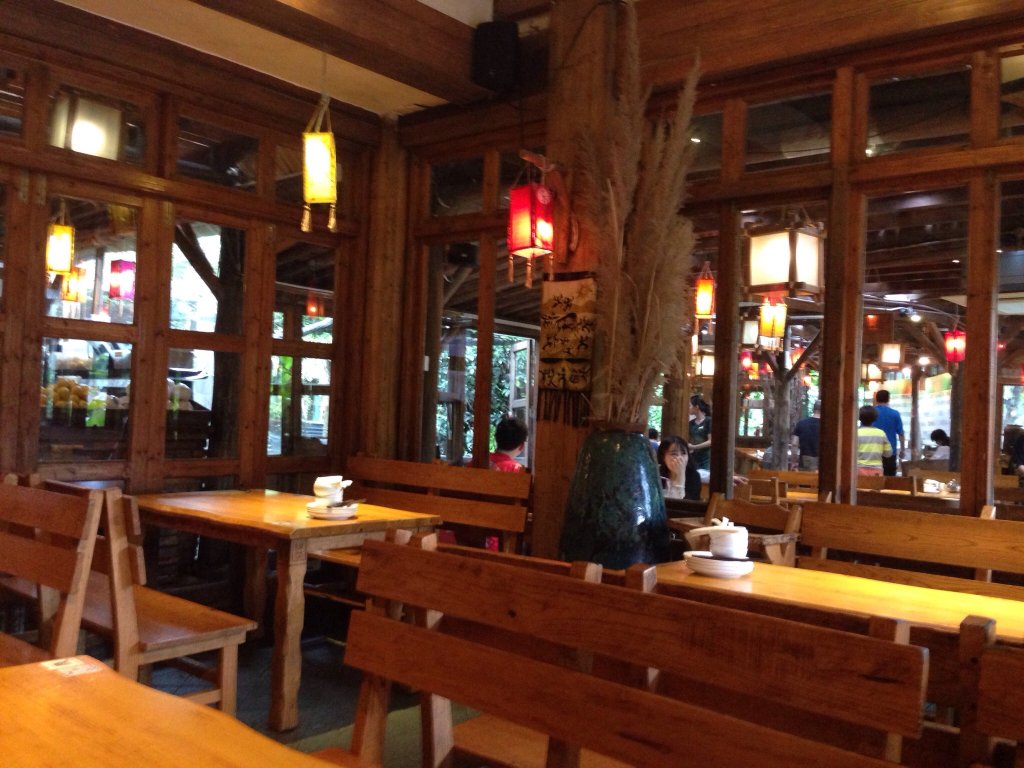 Ju ra Trip Advisor – Restaurants Hangzhou
Ju ra Trip Advisor – Restaurants Hangzhou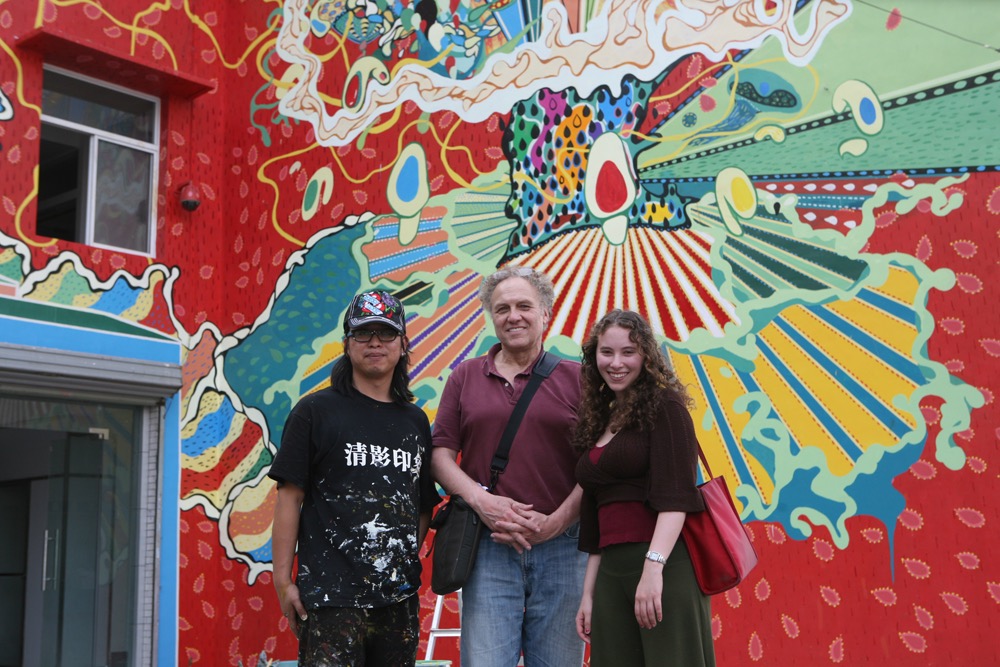 Chen dongfan, the author, and Brenna, my daughter – May, 2011
Chen dongfan, the author, and Brenna, my daughter – May, 2011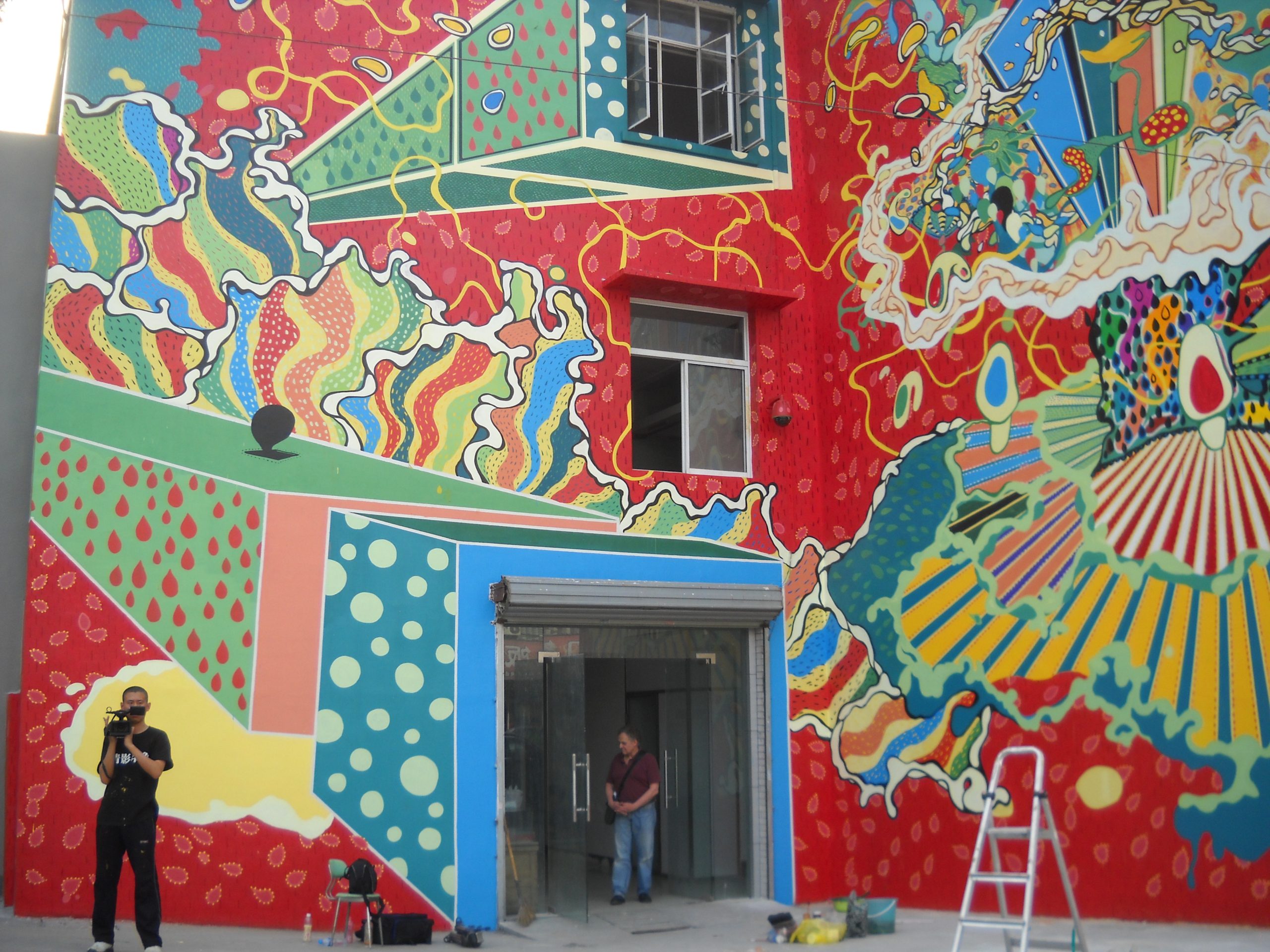

 You can see more of Chen’ work at –
You can see more of Chen’ work at –
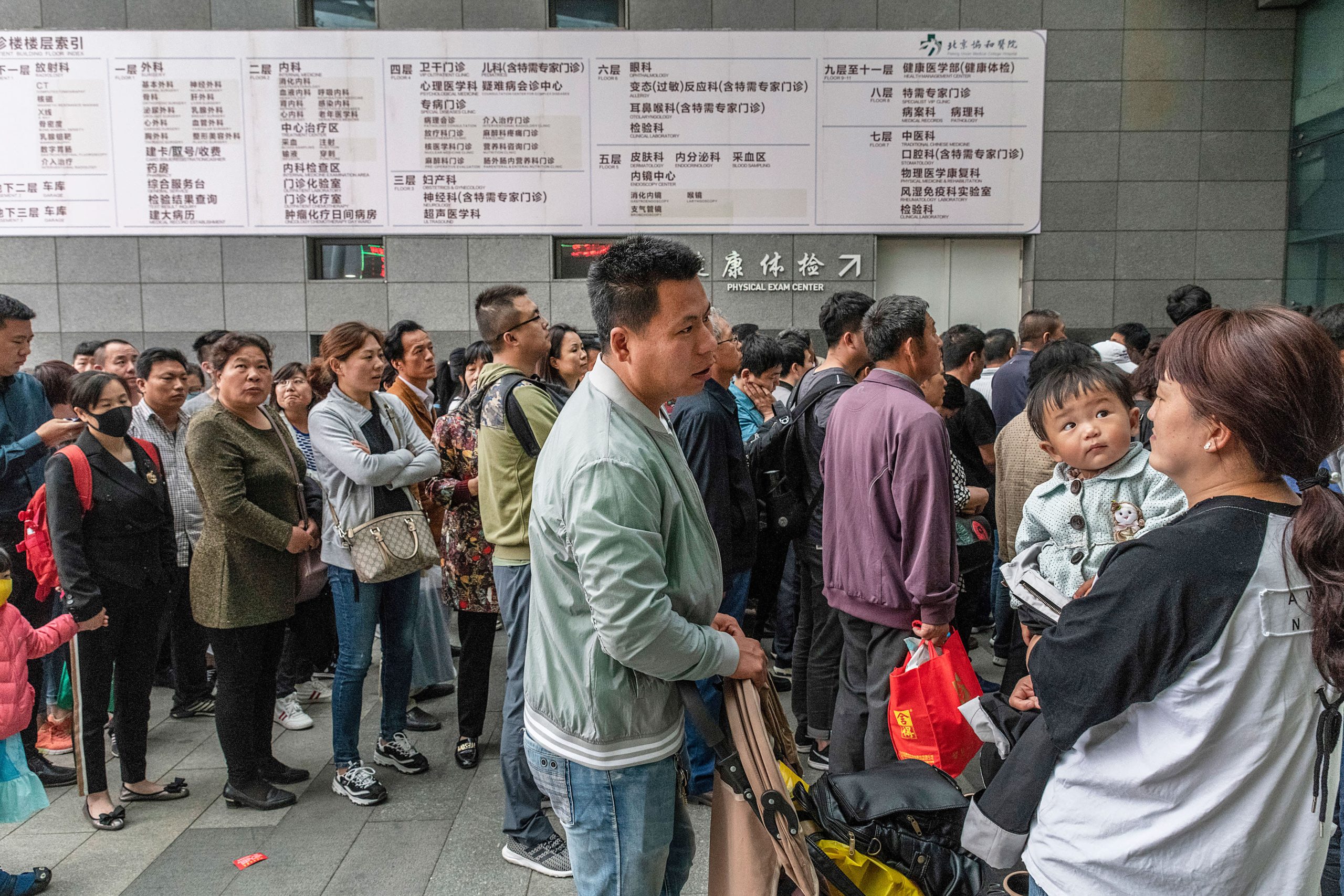 Source: Gilles Sabrié, The New York Times at
Source: Gilles Sabrié, The New York Times at